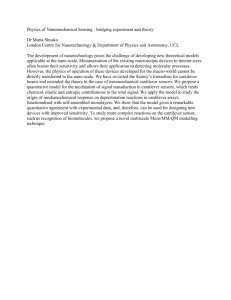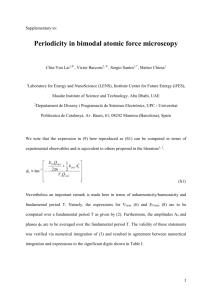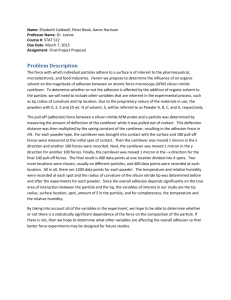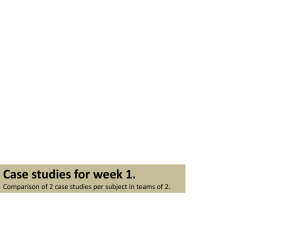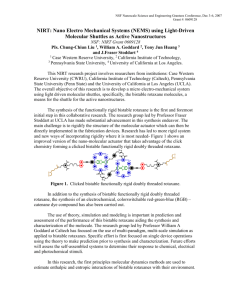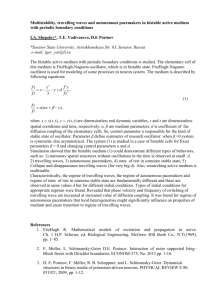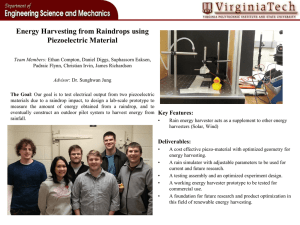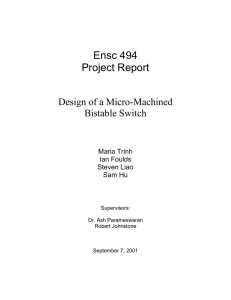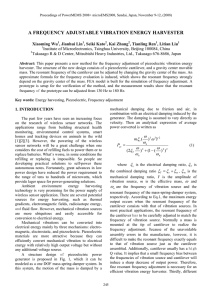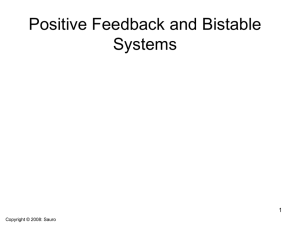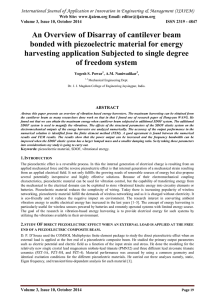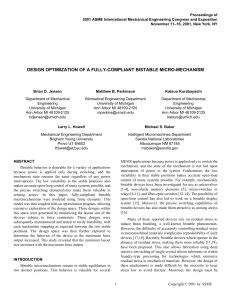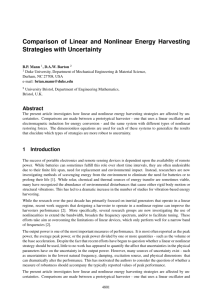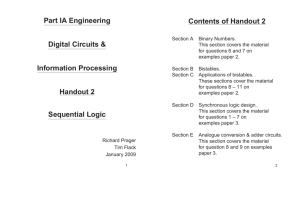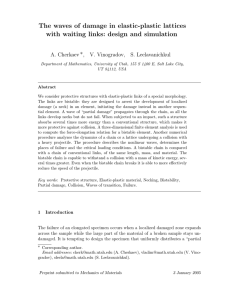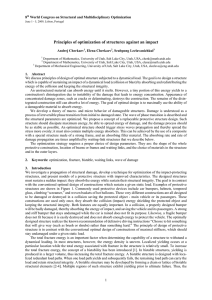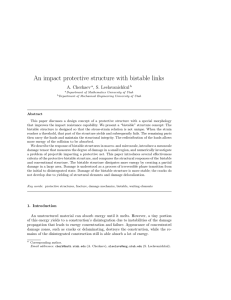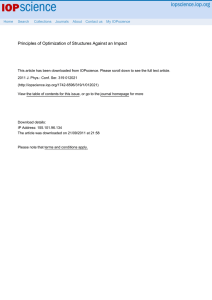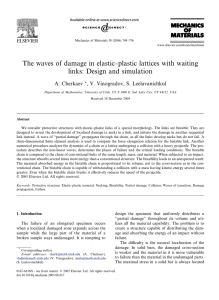Kanishka Singh
advertisement
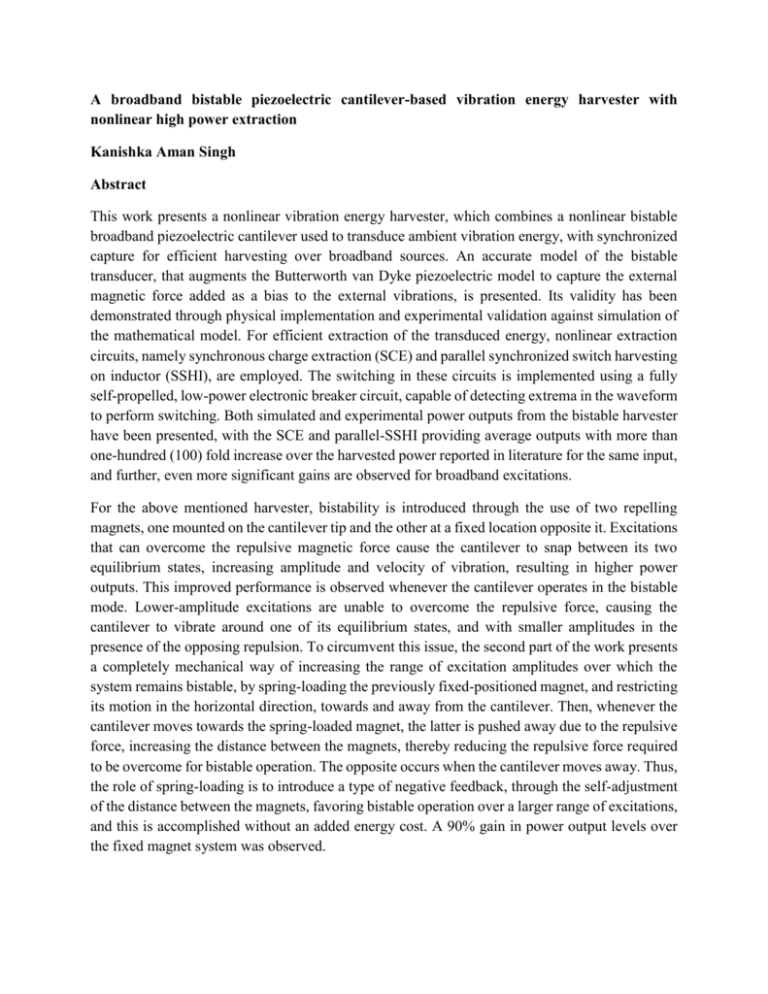
A broadband bistable piezoelectric cantilever-based vibration energy harvester with nonlinear high power extraction Kanishka Aman Singh Abstract This work presents a nonlinear vibration energy harvester, which combines a nonlinear bistable broadband piezoelectric cantilever used to transduce ambient vibration energy, with synchronized capture for efficient harvesting over broadband sources. An accurate model of the bistable transducer, that augments the Butterworth van Dyke piezoelectric model to capture the external magnetic force added as a bias to the external vibrations, is presented. Its validity has been demonstrated through physical implementation and experimental validation against simulation of the mathematical model. For efficient extraction of the transduced energy, nonlinear extraction circuits, namely synchronous charge extraction (SCE) and parallel synchronized switch harvesting on inductor (SSHI), are employed. The switching in these circuits is implemented using a fully self-propelled, low-power electronic breaker circuit, capable of detecting extrema in the waveform to perform switching. Both simulated and experimental power outputs from the bistable harvester have been presented, with the SCE and parallel-SSHI providing average outputs with more than one-hundred (100) fold increase over the harvested power reported in literature for the same input, and further, even more significant gains are observed for broadband excitations. For the above mentioned harvester, bistability is introduced through the use of two repelling magnets, one mounted on the cantilever tip and the other at a fixed location opposite it. Excitations that can overcome the repulsive magnetic force cause the cantilever to snap between its two equilibrium states, increasing amplitude and velocity of vibration, resulting in higher power outputs. This improved performance is observed whenever the cantilever operates in the bistable mode. Lower-amplitude excitations are unable to overcome the repulsive force, causing the cantilever to vibrate around one of its equilibrium states, and with smaller amplitudes in the presence of the opposing repulsion. To circumvent this issue, the second part of the work presents a completely mechanical way of increasing the range of excitation amplitudes over which the system remains bistable, by spring-loading the previously fixed-positioned magnet, and restricting its motion in the horizontal direction, towards and away from the cantilever. Then, whenever the cantilever moves towards the spring-loaded magnet, the latter is pushed away due to the repulsive force, increasing the distance between the magnets, thereby reducing the repulsive force required to be overcome for bistable operation. The opposite occurs when the cantilever moves away. Thus, the role of spring-loading is to introduce a type of negative feedback, through the self-adjustment of the distance between the magnets, favoring bistable operation over a larger range of excitations, and this is accomplished without an added energy cost. A 90% gain in power output levels over the fixed magnet system was observed.
